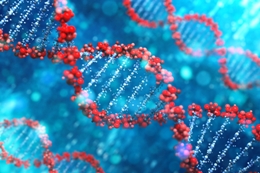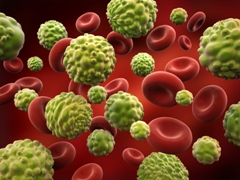04 December 2015
 The University of South Australia’s Centre for Cancer Biology (CCB) and aligned research in Biochemistry and Cell Biology, Clinical Sciences and Pharmacology and Pharmaceutical Sciences have all earned the highest possible world-class rating in the 2015 the latest Excellence in Research for Australia (ERA) results.
The University of South Australia’s Centre for Cancer Biology (CCB) and aligned research in Biochemistry and Cell Biology, Clinical Sciences and Pharmacology and Pharmaceutical Sciences have all earned the highest possible world-class rating in the 2015 the latest Excellence in Research for Australia (ERA) results.
The rating places research work at the CCB and research concentrations across the University’s Division of Health and Sansom Institute in an elite field of world-class research in the vital area of cancer, including a wide range of specific cancers such as leukaemia and bone cancer and also a range of other serious diseases such as diabetes and epilepsy.
In total, UniSA achieved the top “5” rating for research excellence that is “well above world standard” in 16 research fields, an eightfold improvement in 5 ratings since the last time evaluation was performed in 2012.
UniSA Deputy Vice Chancellor: Research, Professor Tanya Monro says the remarkable improvement is evidence that UniSA is attracting and nurturing outstanding researchers and research leaders in its areas of strength.
“Our distinctive approach is to establish critical mass with excellence in research fields that are also areas of vital importance to the nation and to do so in partnership with the end-users of our research so that there is a pathway to impact,” Prof Monro says.
“We know that innovation in the diagnosis and treatment of cancer is a huge priority for the health sector because it is one of the leading causes of death in the nation.
“Innovation in this space has opened up a great wealth of knowledge and thanks to research, we now understand that cancer is not a single disease but one that has many variations.
“The kinds of personalised medicine UniSA researchers are developing will be vital in beating cancer but also in understanding and fighting other illnesses.
“UniSA’s research in this space is broad – everything from developing ingestible drugs that are more effectively absorbed by the gut, right through to unlocking the DNA origins of inheritable conditions such as epilepsy, or devising systems for drug delivery at a cellular level.
“We are committed to strengthening our research so that it is not only world-class, but is always focussed on supporting leading edge industry research and on bringing real benefits to people.”
UniSA Vice Chancellor Professor David Lloyd says the results reaffirm the University’s commitment to undertaking research that is both high quality, and relevant.
“We have taken on board the Government’s agenda and our community’s need to advance knowledge in key areas and these results show we are delivering in those areas,” Prof Lloyd says.
“In health that includes top results for our research into diet, nutrition and exercise, psychology and neuroscience, pharmacology and nursing.
“The University has also earned an above world-class rating for research that is supporting a cleaner more efficient mining and resources sector, rapid innovations in solar technology, huge advances in the development of new materials that support new green industries, and innovations and advances in bio-nanotechnology that are revolutionising our approaches to drug development, wound treatments and biosecurity.
“We are building the expertise to make the kind of contribution that transforms society by supporting better outcomes for all Australians, the development of new industries and a more prosperous nation.
“In Australia universities have a pivotal role in powering enterprise through the development of new knowledge and at UniSA we see this as central to our research culture.”
Media contact: Michèle Nardelli office +61 883020966 mob 0418823673 email michele.nardelli@unisa.edu.au
Research from the Centre for Cancer Biology
The DNA of metastasis
 Just why and how cancers spread and grow is one of the most important factors in reducing mortality from the disease.
Just why and how cancers spread and grow is one of the most important factors in reducing mortality from the disease.
Groundbreaking cell biology research and the Centre for Cancer Biology’s gene regulation laboratory has uncovered how circular RNAs, or ribonucleic acids, which are found in all tissues in the body, play a role in the orderly function of cells.
Using next generation gene sequencing technology, they have discovered that while circular RNA molecules are usually produced in a highly controlled way, their numbers increase dramatically when cells undergo epithelial-mesenchymal transition (EMT), allowing them to break free of their polarity and gain migratory or invasive properties.
Our researchers have also discovered a protein called Quaking that controls the circularisation process. These two factors, mapping how RNAs are made and how their production and movement is controlled, has given researchers important new avenues to explore in their quest to block the spread of cancers.
The Centre for Cancer Biology is a strategic partnership between UniSA and SA Pathology.



